When textile designer Celina Mancurti offered me a yard of her lovely hand screen-printed and eco-friendly fabric to use on a project, I jumped on it. With our condo for sale in DC and moving to the new place in Nashville, it's been a hot minute since I've gotten to do any superfluous sewing, so I was excited to use the fabric to make...what else...a clutch. What can I say, I freakin' love a clutch. The beauty of this one, though, is that the sewing is about as easy and basic as they come. Read on for the full how-to.
Materials: (2) 13" x 17" cuts of fabric, heavy interfacing, scrap/craft leather, utility knife, needle, thread
You can find these little cuts of leather at most craft stores for just a couple of bucks.
You can find these little cuts of leather at most craft stores for just a couple of bucks.
With right sides facing, sew the two cuts of fabric together all the way around the perimeter leaving a few inches unsewn.
Snip the corners off. This will help make the corners nice and crisp.
Turn right-side-out, and press.
Fold the bottom 5" up. Pin in place, and stitch all the way around the perimeter.
Use a utility knife to cut out two strips of leather -- one 1/2" x 3" and one 1" x 4".
Hand stitch the leather strips into place -- using the larger of the two on the flap and the smaller on the bottom.
Tip: If you make guide holes in the leather with a straight pin first, it makes the hand-stitching worlds easier.
Now enjoy your simple, beautiful clutch!!
Tip: If you make guide holes in the leather with a straight pin first, it makes the hand-stitching worlds easier.
Now enjoy your simple, beautiful clutch!!
Disclaimer: Celina Mancurti provided me with a complimentary yard of fabric. All opinions are my own. If you like this fabric, be sure to check out her full line of fabrics and kitchen and dining linens on her website and Etsy.

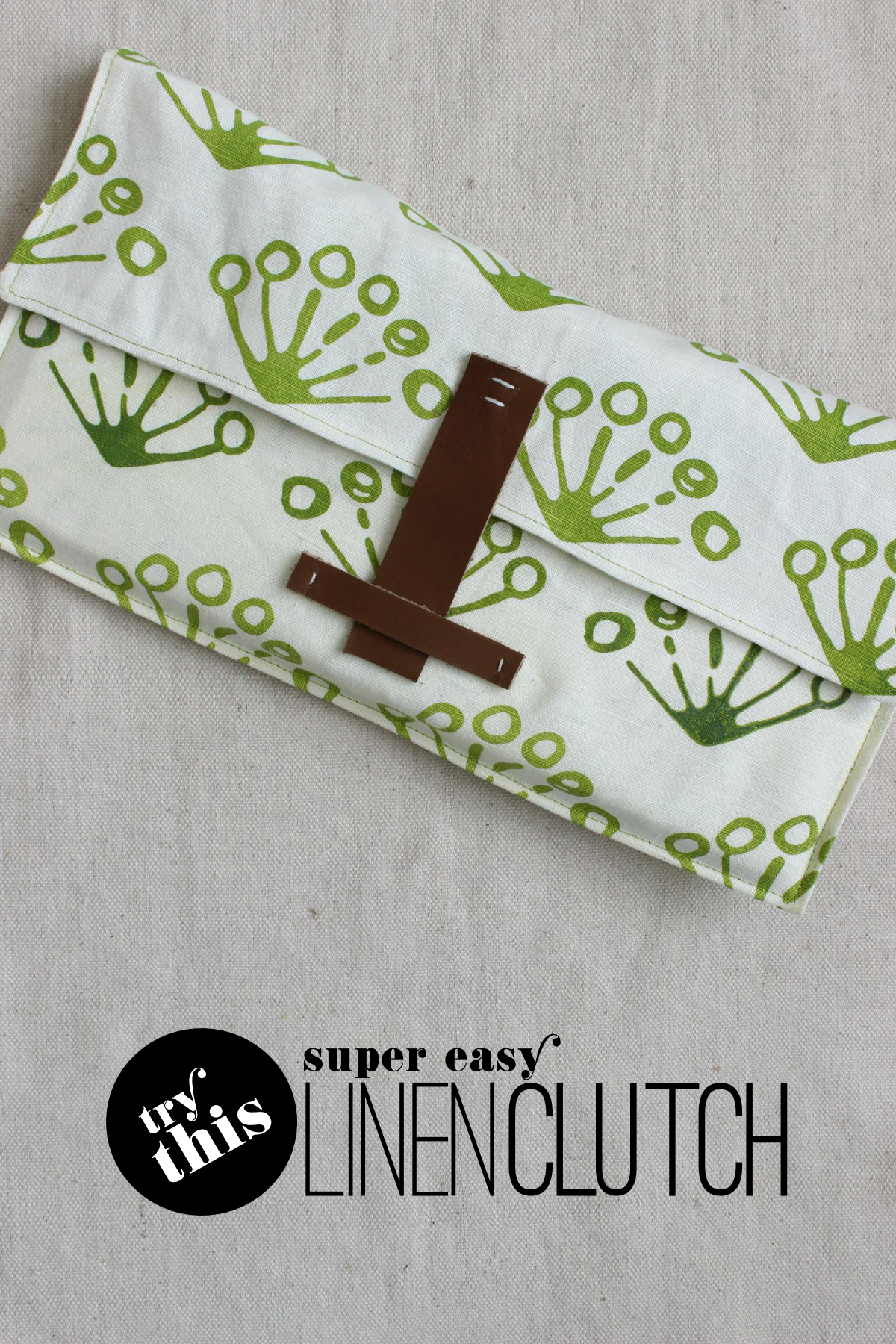
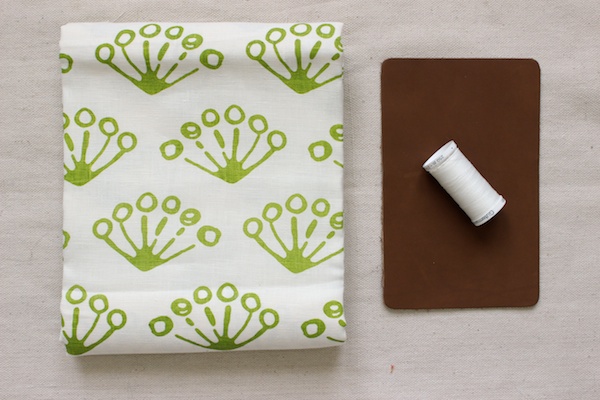
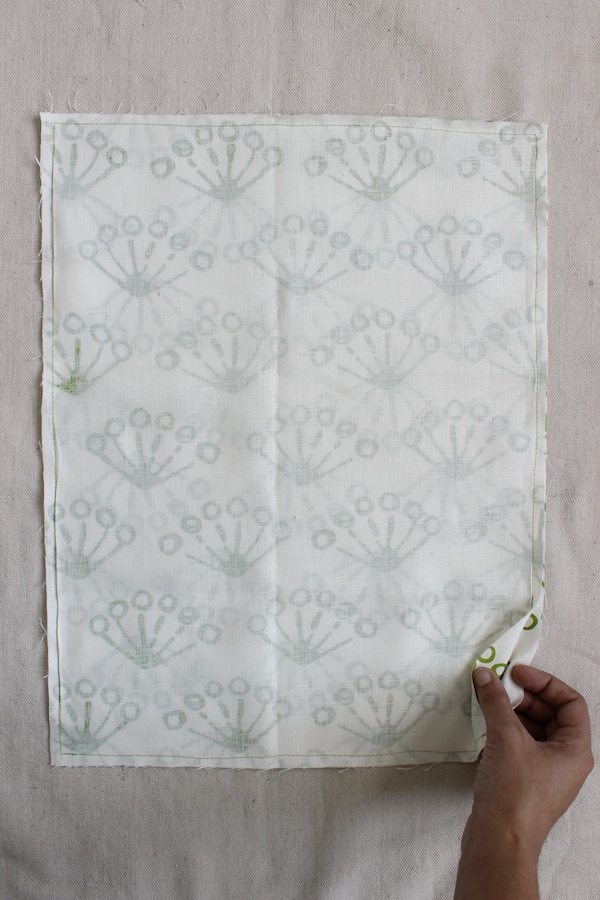
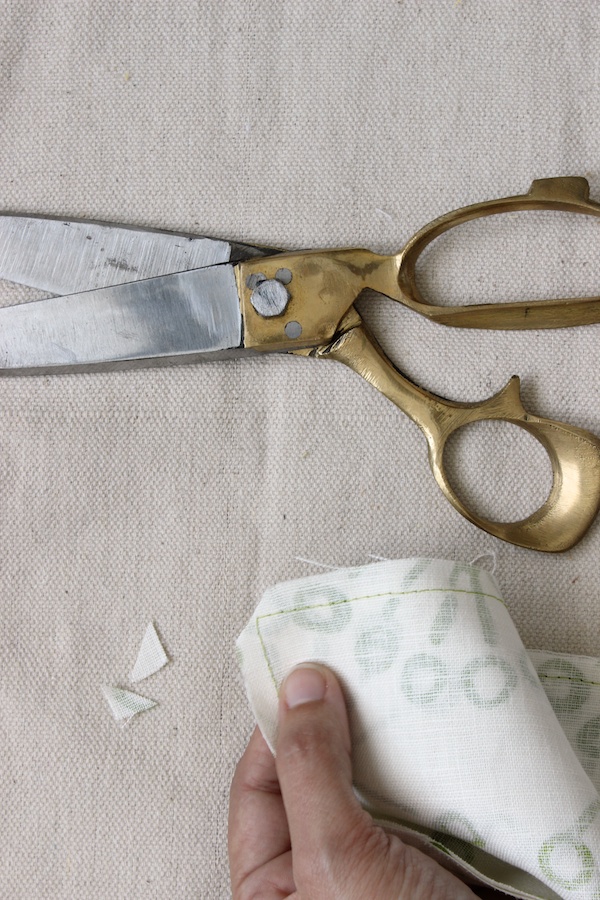
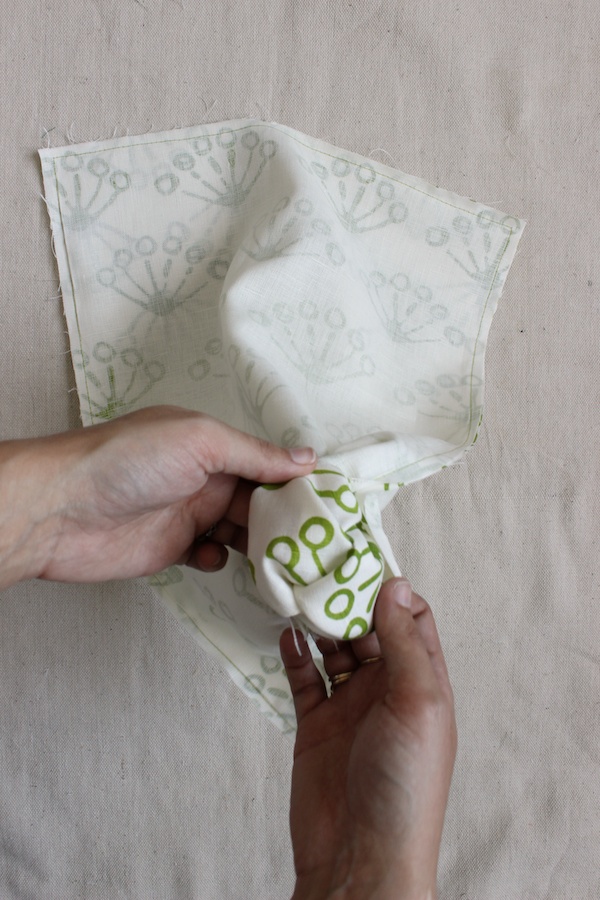
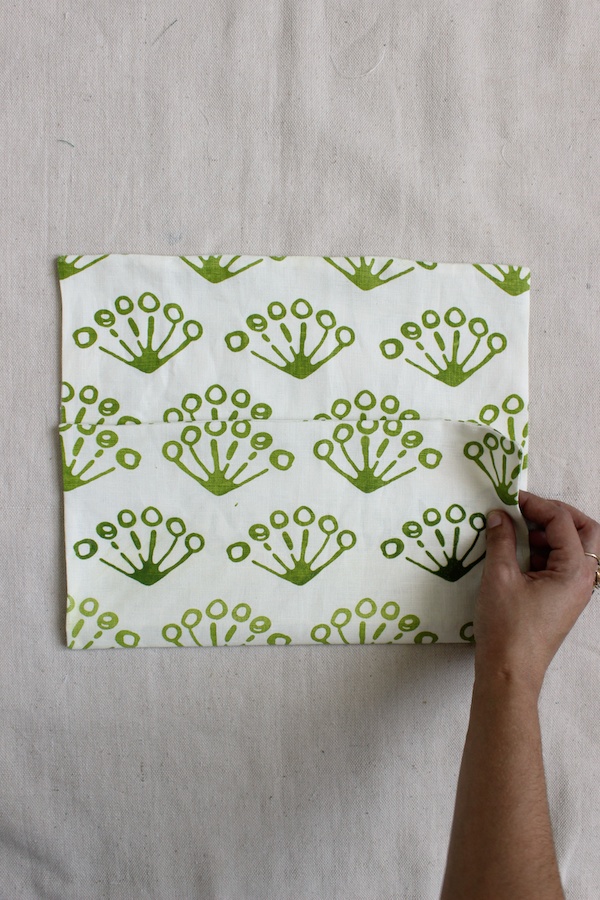
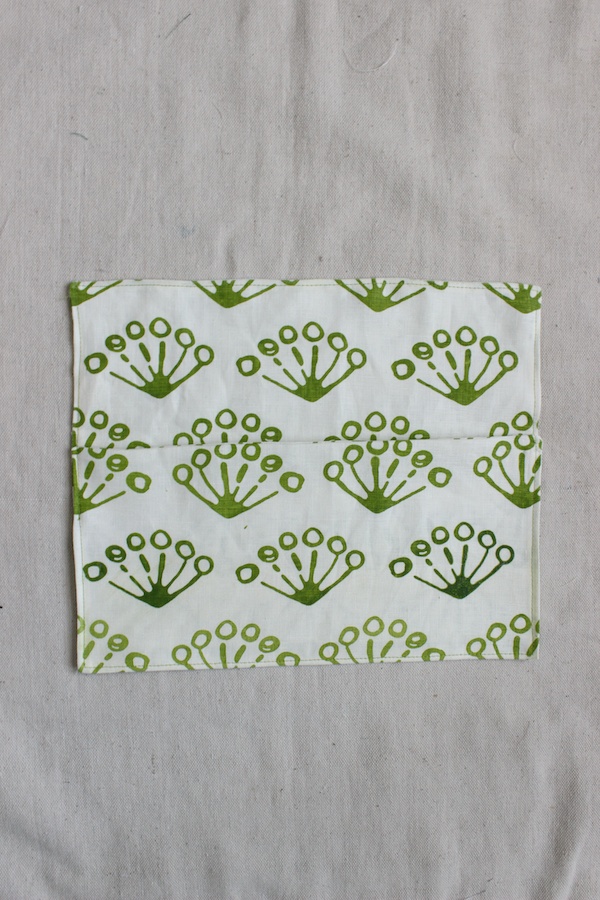
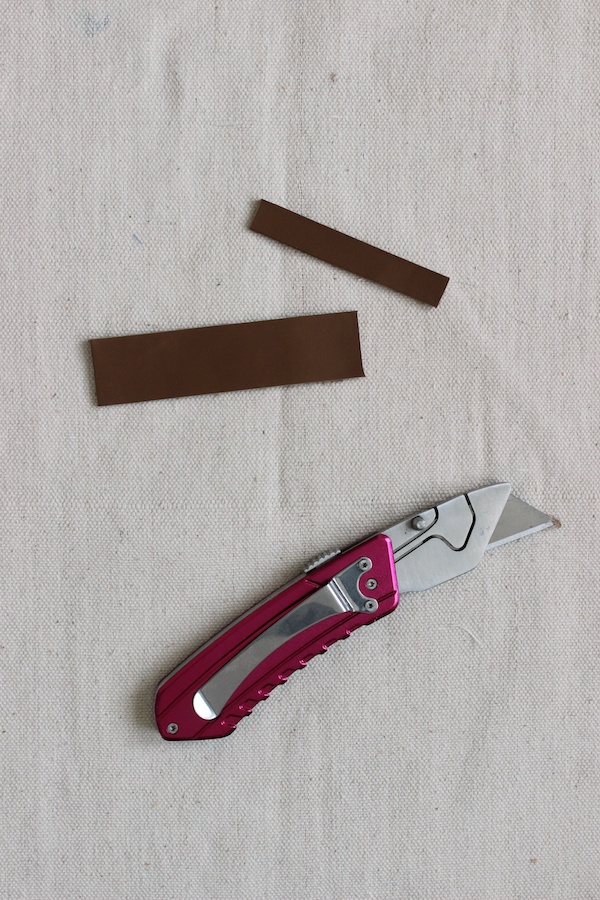
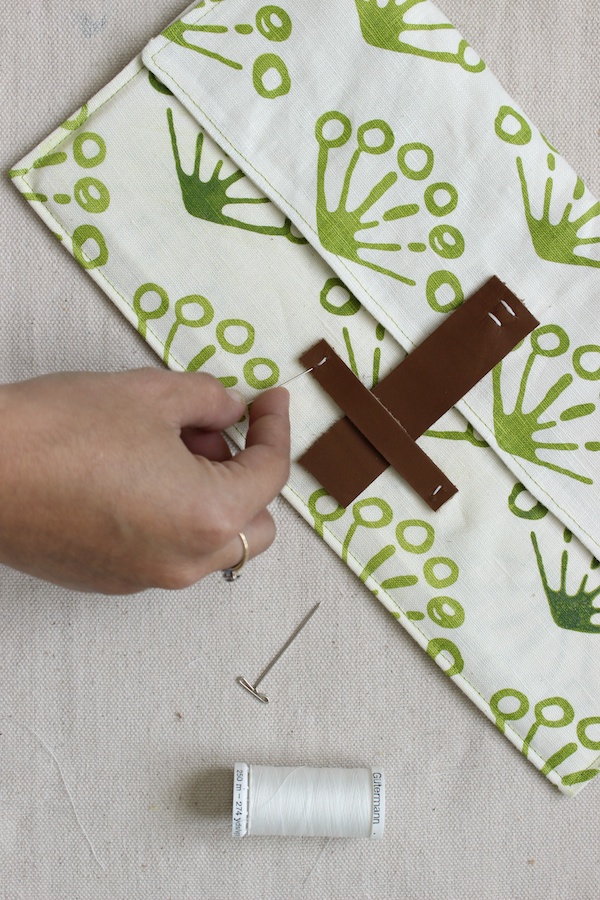
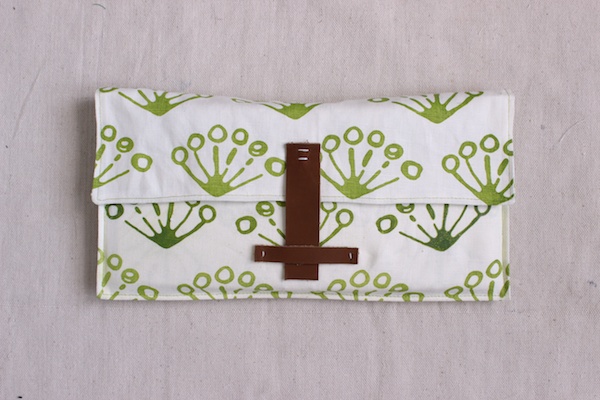
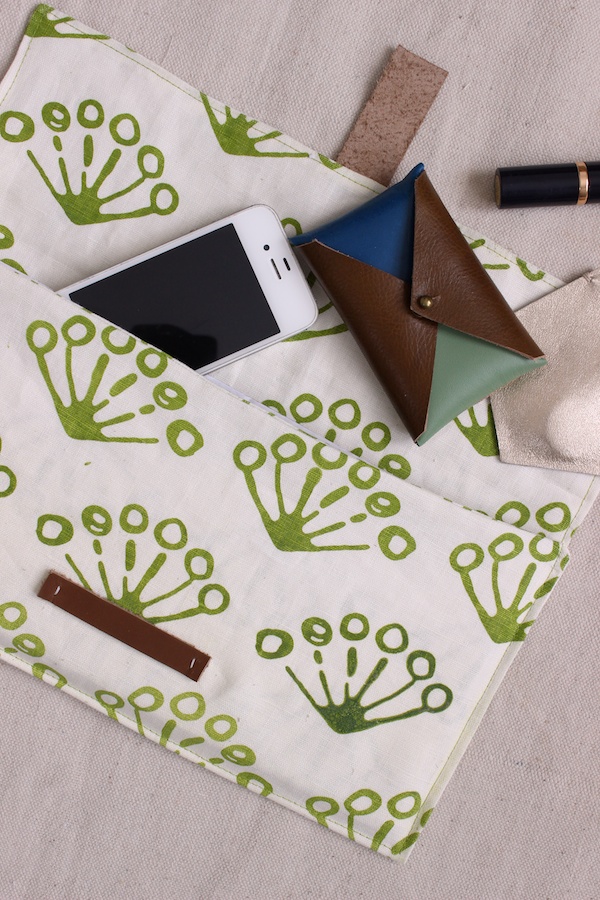
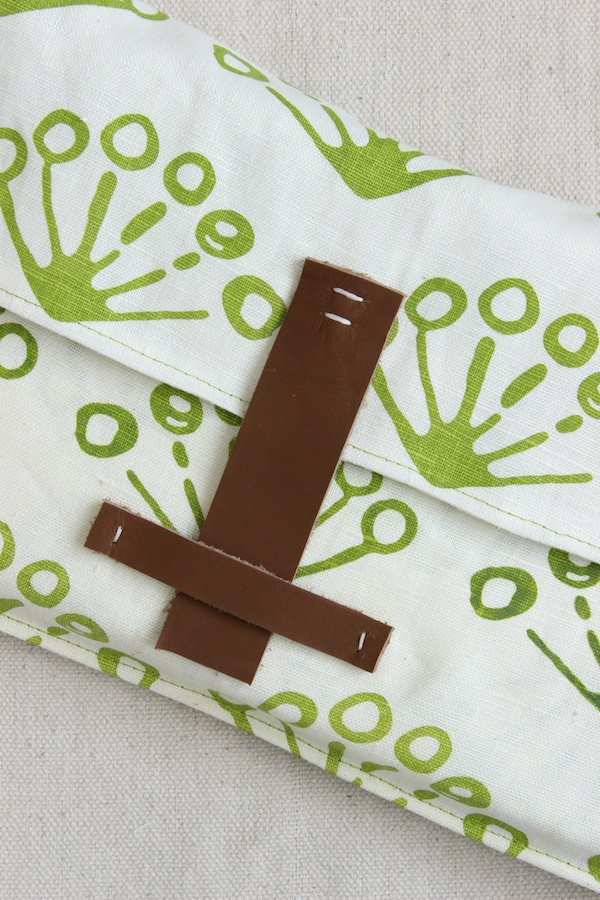
That's so fun and cute! X0
ReplyDeletehttp://the-glitter-life.com/
love! you've got me convinced I need to take a stab at sewing a clutch
ReplyDeletewhere does the heavy interfacing come into play? This is my beginner project :)
ReplyDeleteSo sorry for my delay! Good question! If you were to incorporate some heavy interfacing, you'd just layer it with the other fabric. In that first step up there, you'd have a sandwich of interfacing - fabric - fabric - interfacing, with the fabric's right sides facing one another. So, instead of seeing the wrong sides of the fabric, you'd see the interfacing. I hope this helps, and good luck!
Delete